In this issue of ‘Migratory Birds’ our focus is on the elections. In April, we sent out our questions to candidates for the European Parliament in the form of a letter concerning Europe and its values, the meaning of democracy and equality, the war in the Middle East, and our integration into Greek society. Here’s what the told us.
Dear candidate,
We are the Young Journalists, a team of adolescent boys and girls from Afghanistan, Syria, Iran, Pakistan, Iraq, Kuwait, Chad, Bangladesh and Greece, who publish our own multilingual newspaper ‘Migratory Birds’. We have produced 12 issues of the Migratory Birds newspaper so far. The publication of our next issue coincides with the European elections in May. As young journalists actively contributing in the public discourse of our host societies, we have prepared the following questions for you. Your responses will be published in our 13th issue along with other articles dedicated to the elections and our participation and integration in our new societies.
- According the EU official website, all member-countries of the Union share the same values and objectives as far as respect for human dignity and human rights, freedom, democracy, equality and the rule of law are concerned. Why some countries of the Union have different rules and regulations for accepting refugees or respecting other religions and beliefs?
- ًRefugees and migrants don’t have the right to vote or get elected in the elections although the live in European countries. How are you planning to assist their active participation in the society and listen to their opinion on matters that affect their lives?
- Many European countries are being involved in wars that make people leave their countries. What do you think should the foreign policy of the EU be for the countries that are in war? Also, what about those countries which are not in war but are still dangerous for their citizens, such as Afghanistan and Iraq, where terrorist attacks happen every day?
- What’s the EU policy for the refugees that are going to stay here? What about their education and integration in their new society and their access to labor market?
Thank you very much,
The Young Journalists team
KINAL | Eda Gemi
- Several European countries (i.e. Hungary, Poland) governed by right-wing populist governments have articulated ant-migration and nationalistic rhetoric particularly with regard to EU’s migrant quota system. According to them the imposition of quotas hit the very foundations of national sovereignty. Instead of accepting refugees, they insist to the approach which supports that providing assistance to their countries of origin is a more effective long-term solution. On the other hand, the member states have legally binding obligations under the EU Relocation scheme. As such sanctions have been advocated against those countries for breach of fundamental EU values like the rule of law.
- Promoting their active participation through:
– Tailor-made bottom up consultation with their organization and associations at local, national and EU levels.
– Organizing public hearing in special sessions dedicated to their issues of concerns.
– Empowering their grass-root organizations by means of funding projects and creating bridges among civil society in various countries.
– To promote a specific directive regarding the standard right to vote at local level after 5 years of permanent residence in a country. - I’m not quite sure if EU is involved in such wars. However, in my opinion, what EU should do is to proactively exercise foreign policy oriented to promote peace and cooperation, particularly regarding the protection of human lives and conflict resolution.
- According to EU “Action Plan on the integration of third-country nationals” the refugees legally residing in EU are fully entitled to active participate in the economic, social, civic and cultural life of Member States. The members states, on the other hand, are involved in combating discrimination and segregation; providing equal opportunities and promoting intercultural dialogue and mutual acceptance between third-country nationals and host societies.
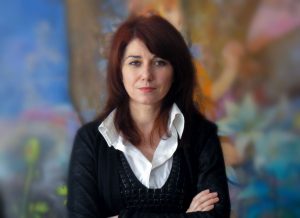
KKE | Anna Grigoriadou
- It’s a bit presumptuous of the EU to be talking about human rights. Ever since its inception, the EU has been an elitist and reactionary alliance. All relationships formed within it merely reinforce worker exploitation, tear up worker and other rights, commercialise education, health and welfare and intensify repression. The EU only respects the interests of capitalism, which are in conflict with the needs of today’s working class and those of the poorest members of society, regardless of nationality, colour, creed etc. Capitalism, its governments and its international alliances intervene in wars, bombs countries, uproot thousands from their homeland and play geopolitical games on the backs of refugees and migrants. The policies they shape are based solely on the immediate requirements of each country’s capitalist economy. Any differences between them are merely a result of this.
- Refugees and economic migrants are victims of war and exploitation, as are workers in Greece and in other countries that receive them. That’s why they have so much in common. They have every reason to fight side by side against their joint enemies: capitalism, its governments and its international alliances such as NATO and the EU. They must also fight against the unacceptable agreement between the EU and Turkey that forces people to remain locked in the country of first entry, denies them asylum and places them in concentration camps under appalling conditions. The Communist Party of Greece (KKE) calls on refugees and migrants to set up workers unions and other mass organisations, to fight for their current needs and rights side by side with local workers, to become more active at the side of the KKE and the working-class struggle, in order to overturn the abusive corrupt system, which is synonymous with exploitation, poverty, war and refugees. This is the only way their problems will be solved once and for all.
- The EU and NATO are jointly responsible for wars, exploitation, poverty, nationalism and the curse that is migration and refugeeism. This is the foreign policy of the EU. The aim is to seize all sources of wealth and take control of the transportation routes of energy and goods. They continue to oppress people and regions, even after any hostilities are officially over. Wherever they have set foot, with whatever excuse, they have brought greater instability. The EU interferes politically, economically and militarily in countries all around the world, adding to aggression and militarisation. The KKE strives to strengthen the struggle against all imperialist wars, it stands against the partition of countries and changes in borders, and in support of the disengagement of Greece from the EU and NATO.
- The EU and its member states do not allow refugees and migrants to enter the ports, leaving them instead to drown at sea. They do not permit them to go to their country of choice, but place obstacles in the way of family reunification and are furthermore unmoved by the tragedy faced by unaccompanied minors. They set up concentration camps, they put up modern fences, both the visible and electronic type, in order to allow into Europe only as many workers as the capitalist system needs. Of course they give them heavily reduced benefits and wages. They implement programmes specifically designed to assimilate them in order to exploit them. That is why fans of the EU cannot genuinely claim to be against the racism and nationalism that this strategy provokes. The KKE calls on refugees and migrants to boost the organised class struggle and to fight together with their Greek comrades for collective bargaining, wage rises, free health, education, sports and culture. They should fight side by side to help the special problems faced by refugees and migrants.
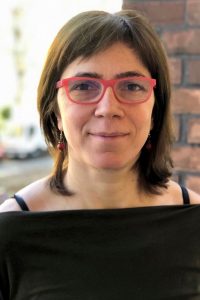
NEA DIMOKRATIA| Kalypso Goula
- The different regulations is, I believe the biggest problem today. As a result Member States located at the external borders of the EU such as Greece face disproportionate asylum and migratory pressure. The European Commission should adjust the existing system by complementing it with a binding mechanism for the distribution of asylum seekers once a certain threshold is surpassed in a Member State. The implementation of such a mechanism could be based on criteria such as the size and population of a country, its economic situation and the number of migrants already in the Member State. In this way the political attitude of each government will not affect the EU policy and other countries.
- First of all I would advise them to organize their communities so that they have direct contact with local authorities and have proper information of their rights and obligations. It’s the local authorities that implement country or EU policies and the local communities that will either embrace them or not and facilitate their integration. The way that I could assist in this area is to become through the local authorities a liaison between them and the European Parliament and make their voice heard in shaping the EU policies that concern them.
- I’m not sure that the European Union has many possibilities to intervene in countries that are in war apart from the general idea that we must help in any way we can the development of sustainable states that provide for living conditions that allow people to stay in their countries of origin. What the EU can do is to improve humanitarian aid and support systems to ease the burden of countries bordering war zones. The EU must also create more programs that enhance regional relocation and support regional development and cooperation networks especially in the Middle East and in the sub-Saharan zone of Africa.
- It is imperative that all Member States have a solid integration policy. As far as the education of minors is concerned Greece there is a specific program of the Ministry of Education, but our experience has shown us that it is still difficult to persuade many refugees to send their children at school and on this point we need to focus. The access to labor market is even more difficult since Greece still faces economic crisis. What must be done – in Thessaloniki such an effort was made with the collaboration of the UNCHR – is to record their professional skills in order to help them find a job.

ECOLOGIST GREENS | Maria Peteinaki
- First of all, the EU is an idea, a set of values and goals that the country members want to reach. It is something most countries aim for. It’s not a given or a law. It’s values that politicians should have in mind for each law making. But it’s true that we often see a difference between the values and the policies applied in the different countries. But normally, regulations and decisions become automatically binding throughout the EU on the date they take effect. Regulations are explained in directives that have to be incorporated into the national law. The commission is the one that has to verify if the countries have voted the regulations in a proper manner, and if not it can take action. If the issue is not settled, the commission can refer to the European court of justice that may apply sanctions to the country.
- I believe every person should in a relatively short amount of time in a country be able to chose where to vote. In their home country or in the country they are staying. I shall advocate in favor of policies in that direction. Furthermore refugees and migrants should be given opportunities to speak in plenaries or working groups so that their voice is heard directly and by everyone. EU money should be put in cultural activities that help refugee and migrants empowerment, and help them find a stronger voice into society.
- People from any of the mentioned countries should be given asylum for sure. But first of all EU is a peace project. We want a European rescue ship instead of military naval Force. The EU countries should not export weapons to countries in conflict and especially civil conflict. But at the present state, with no real common foreign policy it is difficult to oblige any of the countries not to do so. We have then a dilemma. Should the EU be stronger, take out the unanimity vote and be able to do more work through the High representative for foreign affairs? Many of the greens would agree with the need of a more credible, human-rights based and preventive Foreign policy. But from my stand, considering the colonialist past, and the rising of the extreme right in some countries, it would more cautious to deal with the external affairs of the EU when the EU would have reached its own goals of human rights, freedom and democracy.
- The integration is of national responsibility. The EU has an integration action plan for migrants and refugees in order to help member states strengthen their policies. A big weight of course is put on education of language, skills and vocational training. Then the basic needs should be covered, like housing and healthcare. But here we cannot talk about integration when the housing is in camps km away from the cities. Ghettoisation is a very important issue that should be addressed by the nations. Culture and arts play a very important role in empowering migrants and refugees. In that sense Creative Europe and Erasmus + are already very good examples of positive european programs.
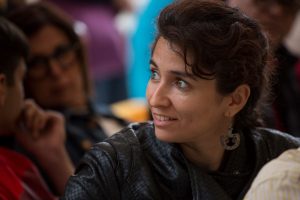
POTAMI | Miltos Kyrkos
- We shouldn’t have but as still the Union is the sum of its member states and not a federation, member states prevail and determine their own policies. As each member state has traveled through its own road through history it is obvious that there are many different traditions and needs that shape its decisions. In the European Parliament we work hard to harmonize these policies towards a European Asylum System and a European Migration policy. As for the respect on religions we have the judiciary system of the MS and the EU that anyone can apply if he/she is a victim of discrimination. We must also accept that the “war for faith” that some fanatics fight (also in european soil) is destroying efforts of decades. The future seems a bit dark.
- Every member state has a policy of citizenship that gives rights to vote and be elected. Also in some countries residency and some years are enough to allow participation in local elections. But there are also other ways that migrants and refugees may be heard, in municipal but also national level and it is up to the member states’ governments and the local municipalities to create and support them: councils, committees, info web sites, recognition of communities’ representation etc. Some will do more, some will do less so it is also our job to support them and show them good practices because participation of migrants is one step towards successful integration.
- It is true that interventions by EU countries have led to a further destabilization of some countries (Iraq, Syria, Libya) and also EU’s naive approach on the Arab Spring helped the destabilization of the whole region. The EU unfortunately has no foreign policy, only member states have. The EU must push with her “soft power”, and that means funds, to create better living conditions and with her diplomatic means to end conflicts. As the second one is not going easily to happen, we should concentrate on the first. The fund for Africa for example is a good initiative.
- Money and integration policies exist but usually Member States are lagging behind. Greece still has not spend more than 400 M available from the Asylum, Migration and Integration Fund but does efforts to offer school integration and legal access to labor market which is the key to integration. EU is working on lowering the existing barriers as fast as conditions permit, but it really is up to the member states to comply. Also we must not forget that the continuing economic crisis in Greece is not helping.
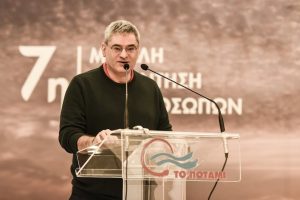
SYRIZA | Yonous Muhammadi
- This is a huge issue indeed. There are several member – states that defy EU rules and values. But this must not be accepted. Member – states cannot be a part of a Union they do not respect and trust. Being a part the European Union does not only mean that they will be benefited in a financial level. They need to share responsibilities as well. They need to contribute to emergency situations. This is why we need more progressive partners inside the European Parliament. We need to build alliances, convergences fighting these backward looking trends.
- This is one of the main reasons why i have decided to be a candidate. I strongly believe that refugees and migrants must acquire the right to vote or even to get elected. Without the ability of exercising this right, we cannot discuss over any type of political participation concerning them. We need an active movement towards this goal. What is more, we need to hear their voices. We must encourage them to claim their rights by stepping on. Refugees’ and migrants’ social inclusion will come through their civic engagement. Through this procedure they will be able to understand that rights bring responsibilities. And they shall be seen as equals, sharing the same rights and the same responsibilities with the rest of the people. Society needs them to be a vivid factor in the political discourse. We need to hear them and they need to hear us. All my life i was politically active, fighting for human rights. I intend to keep up with this just fight, promoting this matter in the highest political levels. This is why i am a candidate.
- European values are ecumenical. Freedom, peace, democracy, prosperity, justice, combating the social exclusion and discrimination, scientific and technological progress, economical stability and sustainability, protecting the human rights. These are the principles under which European Union was formed. We must never forget that. All of above mentioned are opposed to a any type of hostility. Interventions must not stand on gaining profits out of warfare. We must be clear on that and we must stand all together. This matter is very central.
- Education and access to the labor market are two of the most significant factors in people’s social inclusion. But bare in mind that this process has two sides. It is a matter of mutual work. Society should accept refugees and refugees should accept their new society’s standards. Mutual acceptance is the key to this relationship. I understand that there is also prejudice. But we must empower a positive narrative of refugees’ and migrants’ social inclusion. It is possible. We can live all together in the same place, without conflicts and fear. We can see that there are lots of refugee children going to the school, learning the new language, trying to build their future in here. We will be near these children. Refugees and migrants will need to maximize their efforts in including themselves into the local society. We will keep standing next to them.
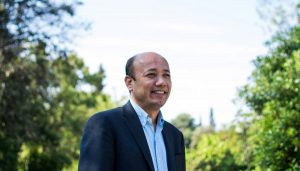
* This article has been published in issue #13 of “Migratory Birds” newspaper, which was released as an annex with “Efimerida ton Syntakton” newspaper (Newspaper of the Editors) on May 25th 2019.

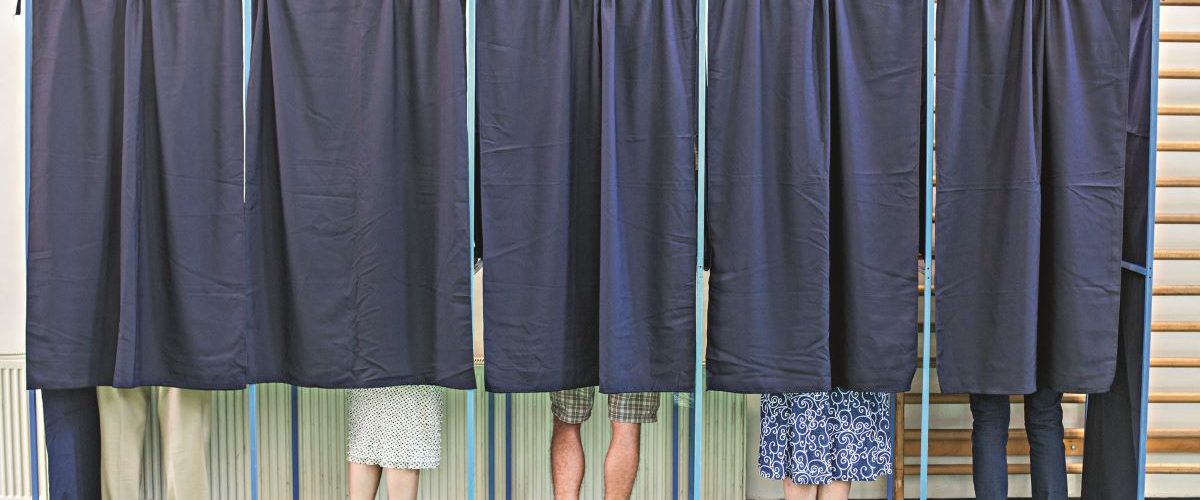
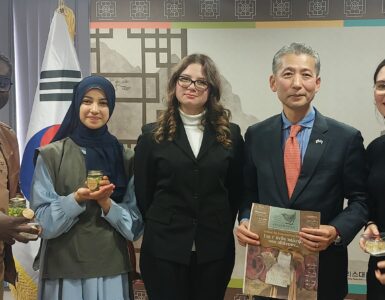
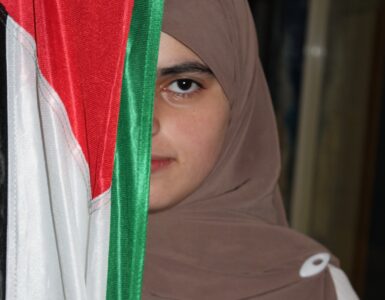
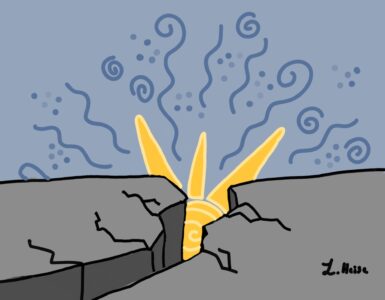




Add comment